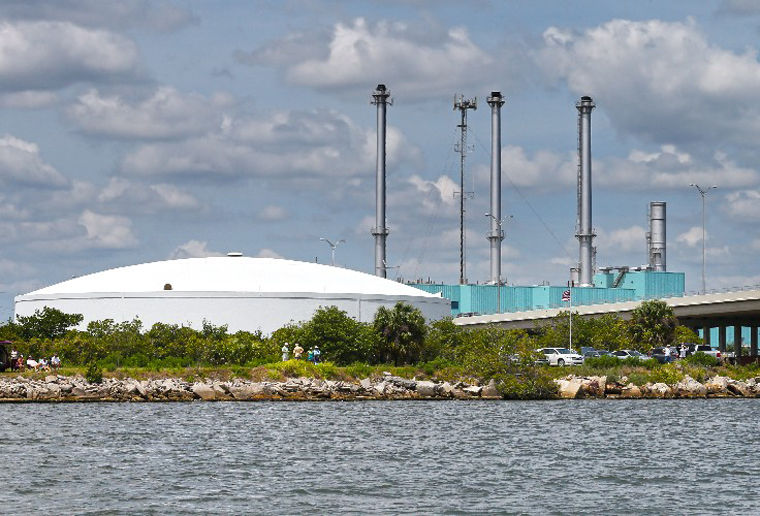
INDIAN RIVER COUNTY — A joint meeting of the elected boards representing Vero Beach, Indian River Shores and Indian River County came up short Tuesday morning as they tried to resolve a lawsuit filed by the Shores in July over unreasonable electric rates.
The Shores wants low Florida Power and Light rates, or else it will, according to Mayor Brian Barefoot, “exercise its sovereign right as a municipality” to provide its residents with electric service once the Town’s franchise agreement with Vero expires in Nov. 2016.
The County wants stable, long-term electric rates on par with FPL’s rates, the nearly $6 million annual transfers from the Vero electric utility into the city’s general fund to cease and an elected, empowered Vero Beach Utility Authority to be formed, with its membership reflecting where the ratepayers live.
Currently, about 40 percent of Vero’s nearly 34,000 customers live in the city, while just more than 50 percent live in the unincorporated County and roughly 10 percent live in Indian River Shores. That would mean representatives of ratepayers outside the city limits would have a voting majority on the utility authority.
Not one of these issues was resolved on Tuesday, though Vero is looking into how a utility authority might be formed.
No voice vote or roll call was taken, but Shores Town Attorney Chester Clem, who was facilitating the meeting, asked for a show of hands, which revealed a clear consensus that the parties had reached impasse. That, Clem said, fulfilled the requirements of Florida statute which mandates that two or more governments engaged in a legal dispute submit to a prescribed conflict resolution process.
Tuesday’s session was the third attempt to resolve the lawsuit — the first two involving Town, City and County staff and their respective legal teams — but the only session which brought the elected officials or decision-makers together.
The meeting was held at the Richardson Center on the Mueller Campus of Indian River State College, where the officials, staff members and attorneys assembled in a U-shape at long tables with Vero on the audience’s left, County officials on the right and the core plaintiffs in the case, the Shores Town Council, in the center.
After introductions, members of the public spoke for roughly 30 minutes, mostly advocating for Vero Beach to find a way to sell its electric utility to FPL. The Shores filed its lawsuit after negotiations were abandoned earlier this year.
The crux of the problem is that Vero and its attorneys have not found a way for the City to exit its membership in and long-term power-supply contracts with the Florida Municipal Power Agency co-op. The solution attorneys thought they had involved the Orlando Utilities Commission assuming Vero’s position in the FMPA contracts and that proved untenable when OUC and the FMPA butted heads over whose bondholders would take priority.
Vero City Council candidate Charlie Wilson highlighted this juggernaut in his comments before the assembled boards saying, “You can’t negotiate with teenagers, or terrorists and you can’t negotiate with the FMPA,” Wilson said, evoking a hearty laugh from the crowd of nearly 40 people present.
Now that the sale is on the “back burner,” according to Vero officials, the Shores is seeking a remedy through the courts to get its residents out of the Vero electric system.
When the Shores’ franchise agreement expires on Nov. 6, 2016, Town officials say they will not renew or sign another franchise, effectively kicking Vero out of town when they no longer have permission to operate a utility in the Shores’ rights of way.
In its lawsuit, the Shores alleges that Vero charges unreasonable rates and that Vero officials have mismanaged the utility for many years, even by phonying-up customer counts to get around a state law that would have subjected the utility, its rates and its management practices to increased state regulation.
In a hasty effort to try to stave off the suit, Vero officials outlined the main points of a deal they’ve struck with OUC whereby OUC gives the city millions in temporary cost reductions in exchange for some major concessions. For its part, Vero would give up its rights to natural gas contracts and nuclear power rights. Vero would also give OUC the right to drop the city as a customer any time after 2020 without OUC paying Vero a penalty.
But probably the most concerning clause in the proposed deal with OUC, from the standpoint of the Shores and the County is the fact that it would convert the city’s current deal, which has no minimum take for power from OUC, to a “take or pay” deal by which Vero guarantees OUC that it will buy at least 85 megawatts of power. On top of that, after Vero shuts down its Big Blue power plant, the City would be required to purchase 54 megawatts of peaking power from OUC. The price for this power is yet to be determined.
This is troubling to the officials representing the 61 percent of Vero’s customers who live in the Shores and the County because both entities are trying to get out from under Vero electric and this “take or pay” provision could complicate that exit from the Vero system.
While the Shores has sought relief through the circuit court, Indian River County has petitioned the Florida Public Service Commission for a declaratory statement about what the County’s rights are once its own franchise agreement expires in March 2017.
Now that the parties are at impasse, they will move forward with choosing an attorney who is an experienced civil mediator to referee the next step, which is formal pre-trial mediation. The timeframe is 14 days to agree on a mediator, with a possible extension of seven days if the parties cannot agree. Then the mediation would take place within 14 days later.



